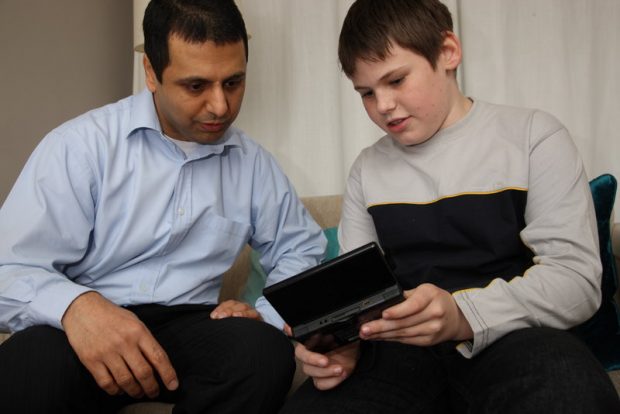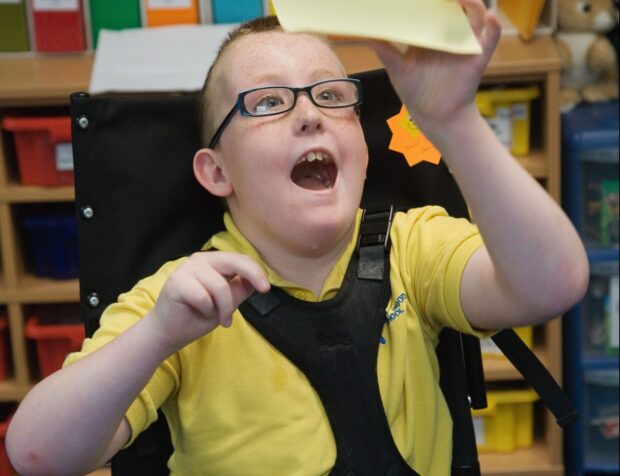Residential special schools (RSSs) care for some of the most vulnerable children in our society. This includes those children with complex special educational needs and/or disabilities (SEND).
Over the last year, we’ve been looking at outstanding RSSs to get a better understanding of what it is that they are doing so well. Unsurprisingly, many have similar features, which is what I want to talk about a bit more here.
We know that the right placement really can help children to thrive. The best RSSs have persistently high expectations for children and what they can achieve. They do not let complex needs or disabilities get in the way of children living the fullest life possible. They give children both a great education, along with specialist support that meets their individual needs.
RSSs generally do very well at inspection. We rate the vast majority as good or outstanding. But while the government sets national minimum standards for RSSs, the best schools routinely go above and beyond these.
Ofsted does not advocate particular kinds of practice or ways of doing things. After all, what works in one place is not necessarily going to work in another. You know your own provision! But here are some interesting examples of things that worked well that we came across in our review.
In this blog, I’ll be talking specifically about our learning from social care inspections of RSS boarding, rather than of education provision.
Strong leadership and management
Strong leadership and management are common factors across all our social care inspections. They are, of course, crucial.
In the best schools, leaders and managers are deeply involved in the day-to-day running of the school. We saw examples of many leaders working on shift. Leaders see the residential support as an integrated part of the school, not an ‘add on’, giving it equal precedence to education provision. Unsurprisingly, the best leaders also made sure that their staff were experienced, well trained and well supported.

Development of independence skills
Some RSSs are doing exceptional work to prepare children for life after school. The best schools not only equip children with the most basic of skills. They go the extra mile to prepare children for life outside of school, such as by giving them employability skills when appropriate.
Examples we saw of this include growing and selling vegetables, raising money for charities, and improving children’s employability by helping them to practice social skills, like engaging in relevant conversations. One school even organised a small business enterprise scheme, which had funded a trip to Blackpool.
Thoughtful admission and transition
It’s natural that moving away from home can be difficult and upsetting for both children and their families. Managing that transition well is important. The best RSSs do all that they can to make the process as smooth as possible, so that children make progress right from the start of their placement.
Careful planning that is individual to each child is vital, so that the transition happens at the child’s pace. Some schools arrange summer activities for children who are due to start school. This gives the children an opportunity to make friends and to meet staff before the new term starts.
Good relationships with parents
As you might expect, good relationships with parents are vital when it comes to achieving the best outcomes for children. Parents know their children best! This includes keeping them involved in the child’s progress, helping them to manage their children’s behaviour when they’re at home and making sure parents’ views are taken into account. Many parents told inspectors about the positive difference the school has made, with one saying that their child ‘now has a future’ through attending.
Access to interesting activities
We saw many schools building links with community organisations to widen the amount of interesting activities that they could offer to children. Access to a broad range of relevant and interesting activities helps children to gain valuable skills.
Some examples of activities on offer included the Duke of Edinburgh scheme, tickets to the Paralympics, visits to a residential care home to talk to the elderly residents, work experience opportunities and sporting activities like football courses. Children’s experiences do not have to be limited (or boring!) just because they have special needs or disabilities.
Evidence and research-based practice
Our inspections also show that schools are making good use of nationally recognised research, as well as their own, to improve practice. One RSS had done some work into children’s sleeping patterns to try to improve them. This means that children are not as tired or anxious, and are able to learn better at school. At another, children who eat a restrictive diet are encouraged to try new foods and exercise more. This improves their health and self-esteem.
Involving children
Involving children in decisions is an important feature of many of the best homes. They are invested in what happens, and feel valued and listened to. That includes being involved in planning activities, such as a ‘student’ council that helps make decisions across the whole school. In one RSS, children helped to develop a new school uniform, taking particular account of the sensory nature of the fabric to help those with sensory needs.

Is there room for improvement?
Providing consistent outstanding care in RSSs is demanding. As in any social care setting, leaders have to manage many challenges. These include juggling resources, employing and supporting staff with the relevant skills and experience, and maintaining consistently high standards.
RSS provision is, on the whole, very good. But these examples from the very best schools show just what is possible when RSSs go beyond the minimum standards expected. Children’s physical and educational needs absolutely do not mean that they should miss out on fun, adventure, and learning skills that are genuinely going to help them live independently or get a job. So many schools are doing a great job of achieving all of this. Children’s lives are enriched, and even changed for the better, as result.
2 comments
Comment by Satish shah posted on
How do I search for special schools for dyslexic 15 year old who is not in the main stream school? Lindamood Bell type learning centre in Notting hill gate London charge £133 per hour to teach but not registered with ofsted as they claim to teach American curriculum.
Comment by External Relations posted on
Apologies for not replying sooner Satish. We'd suggest contacting your local authority in the first instance.